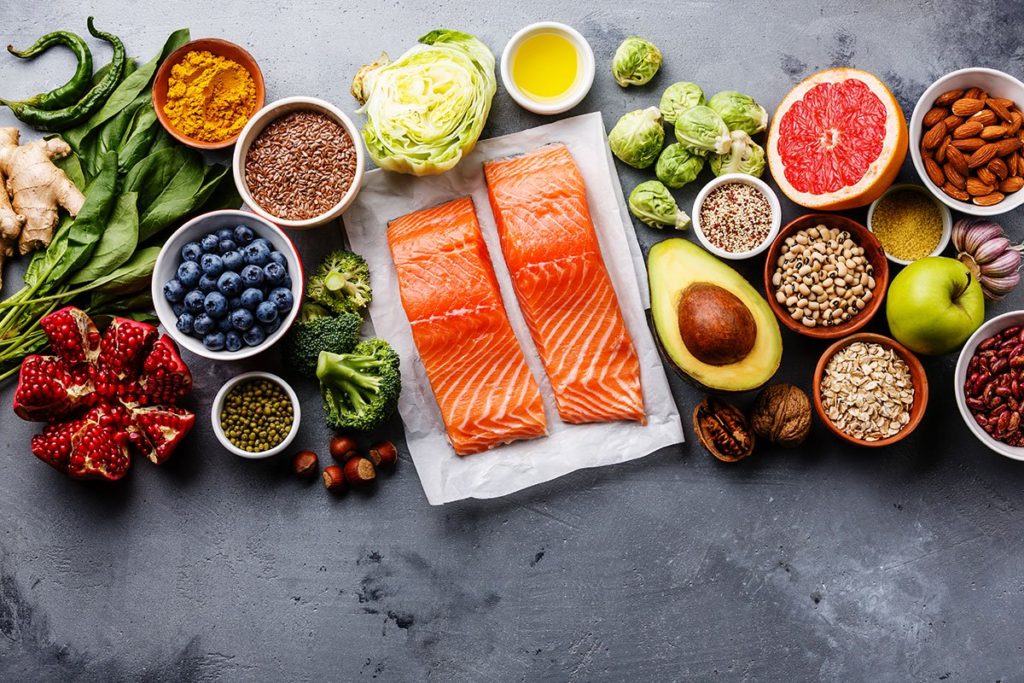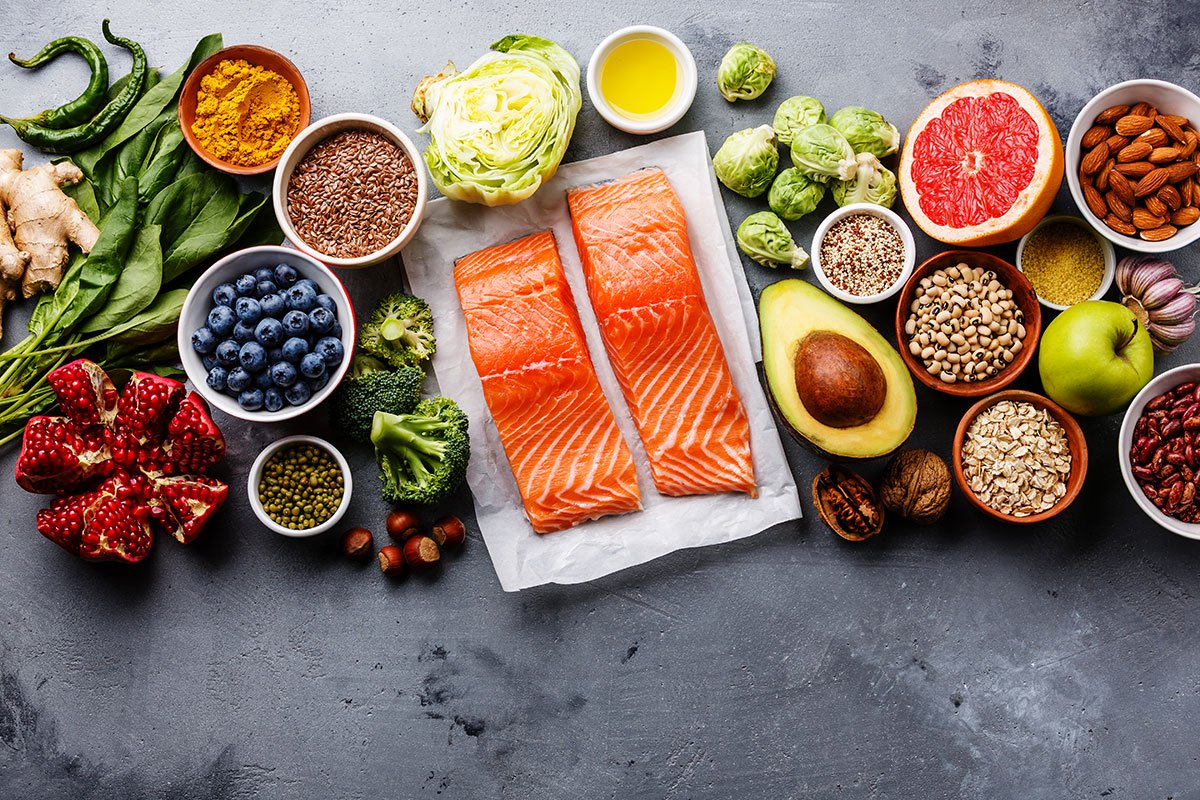
More and more, doctors and researchers are concluding that inflammation is the root of arterial and heart diseases, as well as cancers. In fact, inflammation seems to be at the heart of all kinds of illnesses and maladies.
Of particular concern is chronic inflammation, the common factor in many chronic diseases. Whereas acute inflammation is a healthy response to injury, chronic inflammation causes problems over time. Aside from heart disease and cancers, other common and well-studied conditions associated with chronic inflammation include diabetes, obesity, arthritis, depression, and Alzheimer’s disease.
Chronic inflammation is also said to be the root cause of leaky gut, irritable bowel syndrome (IBS), and insulin resistance. Additionally, inflammation can also be the root of chronic constipation, chronic nausea, fatigue, irregular periods, acne, PMS, weight gain and irregular blood sugar.
Chronic inflammation results when the immune system releases chemicals meant to combat injury and infections (both bacterial and viral), even when there are no foreign invaders to fight off. Inflammation is the body’s natural response to protect itself against harm, but it is meant to be temporary. Chronic inflammation, however, doesn’t simply go away.
Moderate exercise and effective stress management are thought to be central in preventing inflammatory diseases. Yet, dietary interventions are also critical. For many people, chronic inflammation is the result of a poor diet. Inflammatory foods cause our body’s immune response to flare up, creating chronic inflammation.
On the other hand, an anti-inflammatory diet can help prevent or reduce low-grade chronic inflammation, which is notoriously a key risk factor in the host of health problems and major diseases previously noted.
Eating anti-inflammatory foods reduces the inflammation in our body, thus reducing the symptoms caused by inflammation and, ultimately, the risk of chronic disease.
“Many experimental studies have shown that components of foods or beverages may have anti-inflammatory effects,” says Dr. Frank Hu, professor of nutrition and epidemiology in the Department of Nutrition at the Harvard School of Public Health.
This makes sense. After all, food is medicine. Good health starts with good food. Choose the right anti-inflammatory foods and you may be able to reduce your risk of illness. Consistently pick the wrong ones, however, and you could accelerate the inflammatory disease process.
For example, the Mediterranean diet is said to reduce inflammation. This diet emphasizes fish, vegetables, olive oil, fruits, nuts and whole grains.
FOODS THAT FIGHT INFLAMMATION:
• Tomatoes
• Olive oil
• Green leafy vegetables, such as spinach, kale and collards
• Nuts, like almonds and walnuts
• Fatty fish, like salmon, mackerel, tuna and sardines
• Fruits, such as strawberries, blueberries, cherries, apples and oranges
Coffee, which contains polyphenols and other anti-inflammatory compounds, may also protect against inflammation.
FOODS THAT CAUSE INFLAMMATION:
• Refined carbohydrates, such as white bread, crackers and pastries
• French fries and other fried foods
• Soda and other sugar-sweetened beverages
• Red meat (burgers, steaks) and processed meat (hot dogs, sausage)
• Margarine, shortening and lard
The anti-inflammatory diet is thought to curb chronic inflammation and help prevent or treat the following conditions: allergies, Alzheimer’s disease, arthritis, asthma, cancer, depression, diabetes, gout, heart disease, inflammatory bowel disease (such as ulcerative colitis and Crohn’s disease), irritable bowel syndrome (IBS) and stroke.
Research suggests that people with a high intake of vegetables, fruits, nuts, seeds, healthy oils and fish may have a reduced risk for inflammation-related diseases. In addition, substances found in some foods, particularly antioxidants and omega-3 fatty acids, appear to possess anti-inflammatory effects.
Omega-3 fatty acids (found in salmon, flax seed/oil, soy, tofu and nuts) may have anti-inflammatory effects, protecting against various inflammatory diseases. Omega-3 fatty acids may also reduce the incidence of heart disease and benefit intestinal health.
Additionally, elevated blood levels of high-density lipoprotein (HDL) are also an important protective factor against sustained inflammation. HDL cholesterol, often referred to as “good” or healthy cholesterol, picks up excess cholesterol in your blood and returns it to your liver, where it’s broken down and removed from your body.
HDL levels for both men and women should be 60 milligrams per deciliter (mg/dL) or above. When HDL levels dip below 40 mg/dL, your risk of heart disease rises.
People with naturally higher levels of HDL cholesterol are at lower risk of heart attack and stroke. It’s less clear whether that same benefit holds true for people who increase their HDL levels with medications, according to the Mayo Clinic.
Some healthful ways to raise your HDL cholesterol include:
• Consume olive oil
• Eat fatty fish often
• Exercise regularly
• Lose weight
• Stop smoking
Your dietary goal should simply be to eat more real, whole food and less of the unhealthy, processed, refined junk foods. A healthy diet will help you feel better and also reduce health risks.
The best anti-inflammatory foods include:
• organic fruits and veggies
• fermented foods rich in probiotics
• bone broth to heal the gut and boost immunity
• beans and legumes
• healthy fats (like salmon, avocados, olive oil, nuts and seeds)
• spices and herbs (turmeric, ginger, cinnamon, garlic, cayenne, black pepper, clove)
Some additional tips:
Drinking one green smoothie every day is an easy, delicious way to get 2–4 servings of fruits and veggies.
Before or after working out, down a glass of tart cherry juice, or blend it into your smoothie. The antioxidant compounds in the cherries help reduce inflammation.
Magnesium also has anti-inflammatory benefits. Yet, magnesium deficiency is one of the leading nutrient deficiencies in adults, with an estimated 80 percent of us being deficient in this vital mineral. That’s because merely 30% to 40% of dietary magnesium is actually absorbed by the body.
Magnesium is widely found in plant and animal foods. Green leafy vegetables (such as spinach), legumes, nuts, seeds and whole grains are all good sources. In general, foods containing dietary fiber provide magnesium.
The science is clear: Adhering to an anti-inflammatory diet can help protect you from a host of chronic inflammatory diseases. Take the first steps by gradually adding more and more of these anti-inflammatory foods into your diet, which will help to crowd out the inflammatory foods that can lead to illness and disease. Take it one step at a time.






